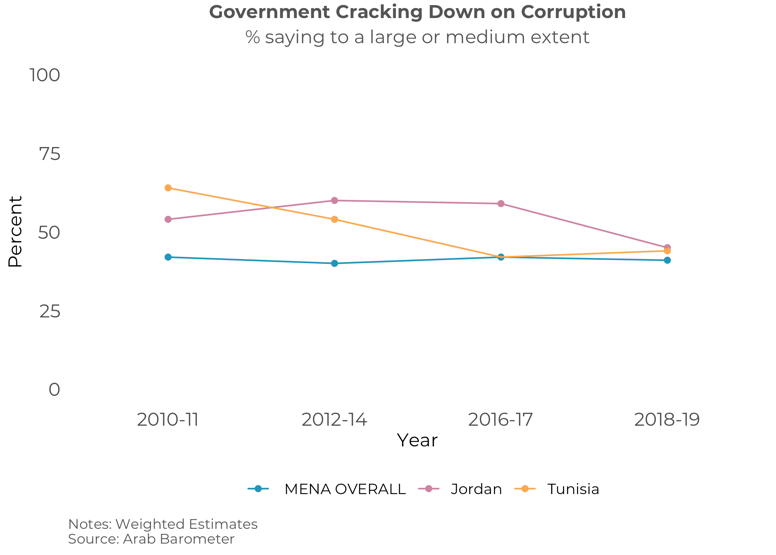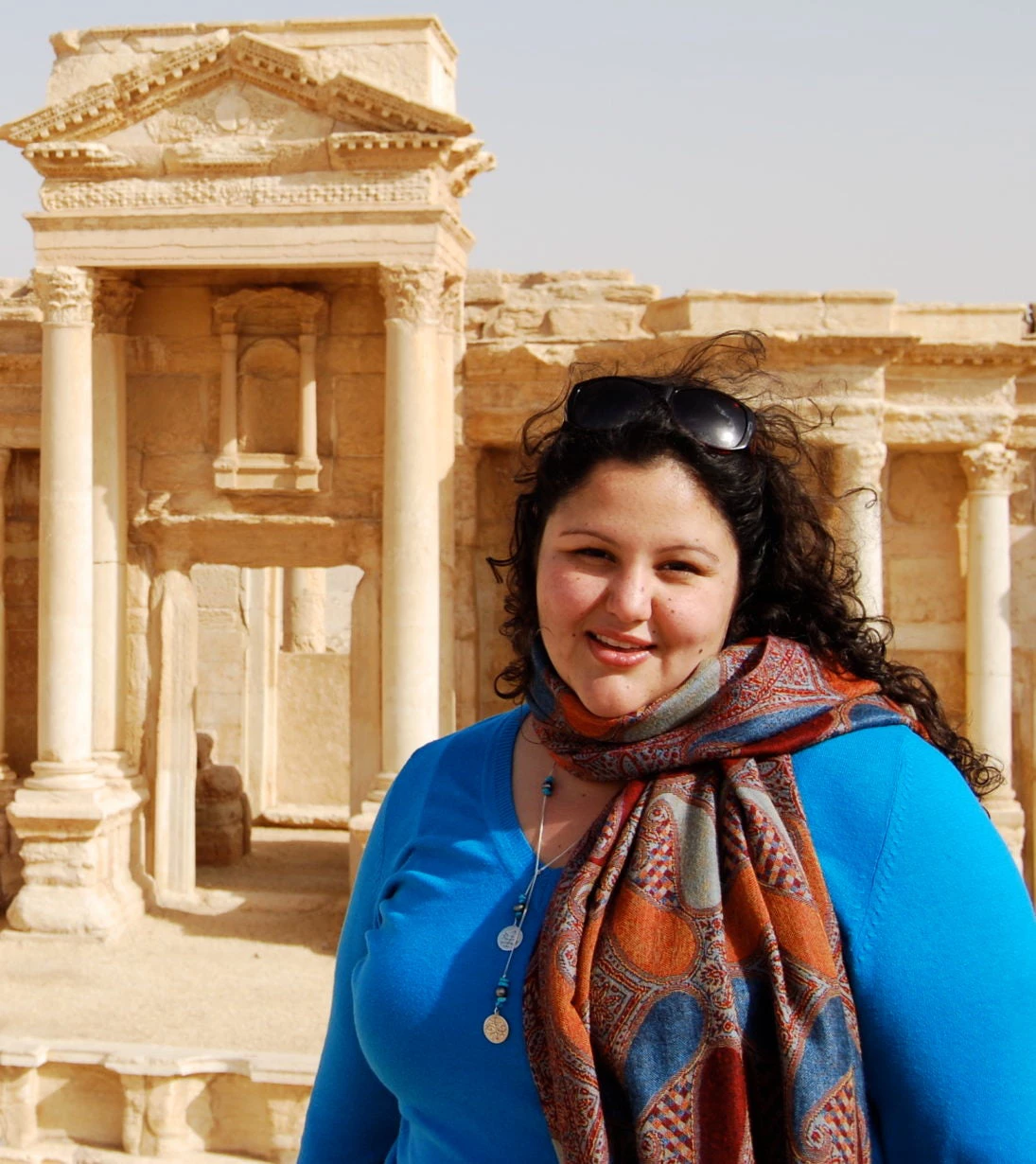 Graph on perception of corruption or 'wasta' pertaining to job opportunities acrosss MENA countries.
Graph on perception of corruption or 'wasta' pertaining to job opportunities acrosss MENA countries.
There is a common grievance embedded in the slogans ricocheting through the recent protests around the world, and in the Arab World in particular: corruption. Arab publics have gathered to decry malfeasance that permeates political and economic structures and ultimately manifests itself in ways that disrupt daily life, be it in the garbage crisis in Lebanon, the cutting of bread and fuel subsidies in Sudan, or the lack of jobs and basic services in Iraq.
While these grievances have peaked of late, Arab Barometer data reveal a region-wide trend that complaints of corruption have increased over the past decade . Arab Barometer conducts nationally representative surveys across MENA that are weighted to reflect the views of ordinary citizens in each country. The results show that across the region, the share of those saying there is a large or medium extent of corruption in state institutions has risen from 78% in 2010 to 84% in 2019 . This increase is particularly pronounced in Tunisia and Jordan.
Simultaneously, the share of Arab publics reporting that their governments are addressing corruption has remained largely unchanged, hovering at around 40%. In Tunisia and Jordan, however, the shares of citizens saying the government is tackling corruption have declined from 64 and 54% to 44 and 45%, respectively.

Unsurprisingly, then, corruption features prominently as a key obstacle facing the region. It is viewed as one of the most important problems, trailing only economic conditions in 2019 . Roughly 17% of Arab citizens say that corruption is the most important challenge facing their respective countries while 19% list it as the second most important issue. In Iraq and Kuwait, however, corruption is seen as a more pressing issue than the economy, with 32% of Iraqis and 42% of Kuwaitis citing it as the most important challenge.
Basic Services
As heard in protesters’ grievances, poor provision of basic services or outright lack of them are among the more tangible and salient consequences of corruption. Arab Barometer contained early indications of such grievances before the latest wave of protests, particularly as they relate to education and healthcare services.
Iraqis are particularly displeased with the education system, with only 26% reporting satisfaction with it, while a majority of Iraqis (52%) believe that paying a bribe is necessary to access better education. Further, while the shares of citizens satisfied with education systems in Egypt and Lebanon are close to the regional average, half or more in each of these countries—as high as 63% in Lebanon and 60% in Egypt—say that bribes are necessary to receive better education services.
Dissatisfaction is even more pronounced when considering healthcare services. Only 38% of citizens in the region are satisfied with the healthcare services in their countries , and this number drops to less than 20% in Libya and Morocco. Meanwhile 47% across the region believe it necessary to pay a bribe to receive better healthcare services, and this share is as high as 69% [SA3] in Egypt and 64% in Morocco.
Jobs
Arab publics are particularly troubled by stagnating economies and anemic job creation. From 2010, when an already low share (25%) reported that their governments were doing a good job at creating employment opportunities, in 2019 the regional share has dropped to just 18%. The shares are particularly low in Lebanon and Iraq, where just 4% and 6%, respectively, say their governments have been effective at job creation.
Worse still, access to jobs is considered unequal. Using wasta (a connection or clout) to get a job is nearly universally thought of as a form of corruption (83%), and similarly high shares (88%) across the MENA region think that obtaining employment through wasta happens often or sometimes.
Overall Assessments of Government
Across the region people have deemed their basic services like education and healthcare as poor and believe bribes are necessary for accessing better quality of each. Arab publics negatively view their governments’ performance in creating employment opportunities and say that connections or wasta that corruptly bypass meritocratic or formal processes are quite common, if not frequent.
These assessments perhaps elucidate why just four out of ten Arab citizens (41%) agree that governments do all they can to provide with necessary services while about a quarter (26%) believe political leaders are concerned with citizens’ needs. Arab citizens are fed up with a system that they perceive is rigged by those in power. Meaningfully addressing the problem of corruption is thus an essential step to meet not only the demands of protesters, but to ensure better quality of governance for citizens across the region.









Join the Conversation